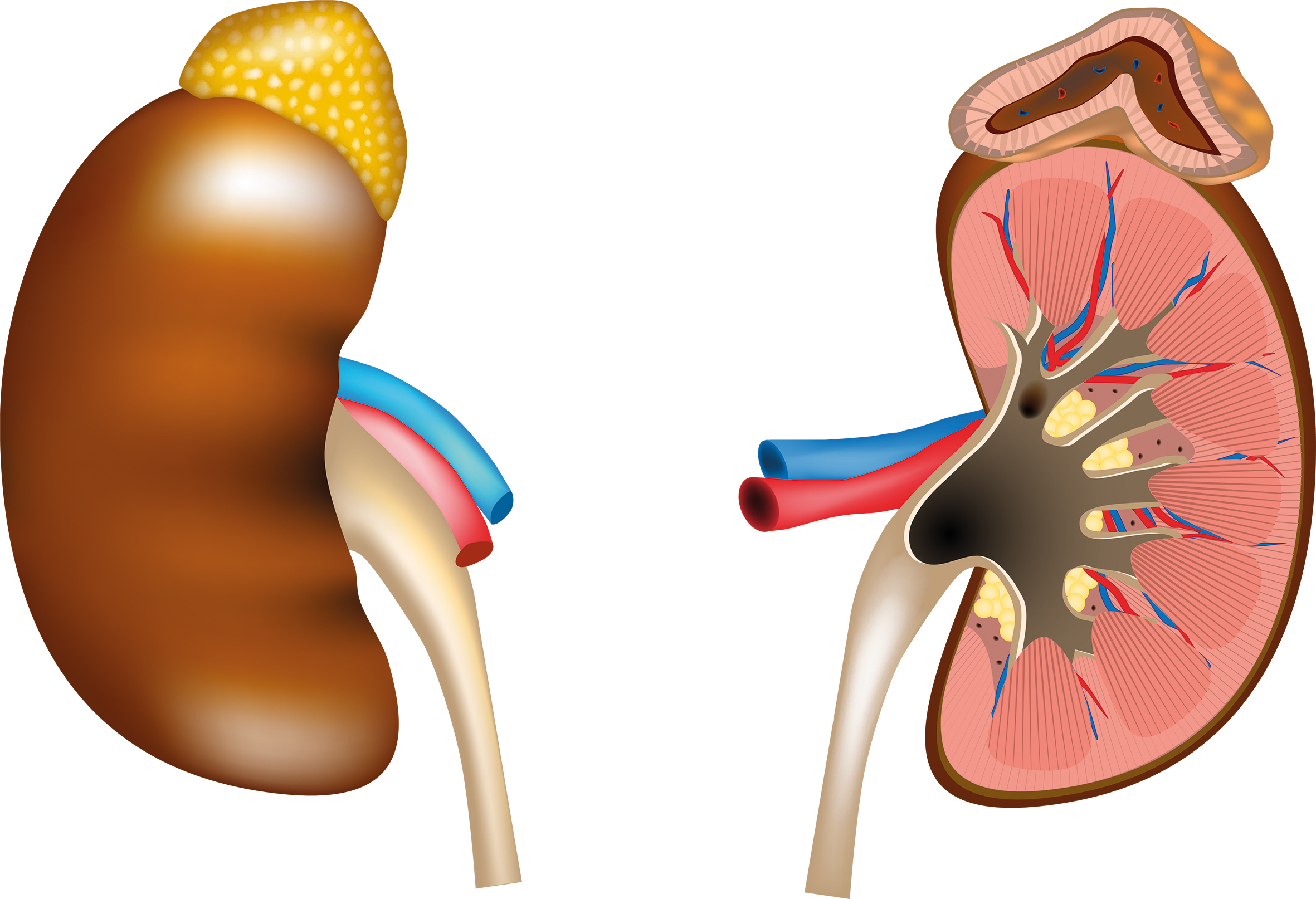Adrenal gland disorder
Symptoms and causes
Symptoms and causes
What is it?
The adrenal glands are small organs that lie on the kidneys like caps and are only separated from them by adipose tissue.
What disorders can occur?
Adrenal aneurysm
An enlargement of the adrenal gland can indicate an underlying disorder that is sometimes discovered by chance (without symptoms), a so-called incidentaloma of the adrenal gland. In this case, hormone tests of the blood, 24-hour urine samples and usually additional imaging are required for both diagnosis and follow-up.
Adrenal hyperplasia (congenital)
Adrenal hyperplasia is a condition of the adrenal gland that is usually inherited and disrupts the production of cortisol and aldosterone. Subsequent symptoms may arise:
- acne
- unwanted hair or a male body hair pattern
- an irregular cycle
- a disrupted menstrual cycle and menstruation
The treatment consists of a lifelong therapy with fludrocortisone or steroid hormone treatment.
Pheochromocytoma
A pheochromocytoma is a tumour of the adrenal medulla caused by the sudden release of catecholamines. The following symptoms may occur:
- sweating
- headache
- anxiety
- hypertension
- shaking
- heart palpitations
- ...
This condition requires a multidisciplinary approach with consultation between the departments of Endocrinology, Surgery, Clinical Biology, Medical Imaging and Nuclear Medicine. Approximately one disorder in three is part of a genetic syndrome with several abnormalities.
Paraganglioma
A paraganglioma is a tumour located outside the adrenal gland. The same symptoms as with a pheochromocytoma (see above) can occur and, also in this case, one disorder out of three is part of a genetic syndrome with several abnormalities.
Conn’s syndrome or primary hyperaldosteronism
Excessive aldosterone production in the adrenal gland gives rise to Conn's syndrome. Aldosterone regulates the sodium balance in our body and is therefore our blood pressure regulator. Too much aldosterone in the blood leads to increased blood pressure. Adrenal glands, whether or not on both sides, are often the cause of this syndrome. The treatment consists of blood pressure lowering medication and often also an operation to remove the diseased adrenal gland.
Cushing's syndrome and disease
If the adrenal gland produces too much cortisol, the following symptoms may occur:
- fatigue
- weight gain
- fuller and redder face
- thinner skin
- muscle weakness
- hypertension
- diabetes
- osteoporosis with spontaneous bone fractures
- ...
The cause of Cushing's disease may be in the adrenal gland itself, another anomaly in the pituitary gland or elsewhere in the body. The diagnosis is made based on several tests, such as a blood test after taking dexamethasone, a 24-hour urine test, a saliva test and imaging. The treatment often consists of a surgical procedure.
Addison’s disease or primary adrenal cortex insufficiency
Addison's disease is a rare disease of the adrenal gland where insufficient cortisol is produced, which is necessary in stressful situations. This disease is often difficult to recognise. Subsequent symptoms may arise:
- severe fatigue
- muscle weakness or muscle aches and pains
- weight loss
- nausea and vomiting
- skin discolouration (darker)
- low blood pressure
- etc.
Usually, Addison's disease is caused by its own immunity, which destroys the adrenal cortex cells; it may also be rarely caused by an inflammation, infection or tumour. Treatment consists of a lifelong therapy with hydrocortisone and fludrocortisone.
Secondary adrenal cortex insufficiency
The secondary adrenal cortex insufficiency is much more common than the primary adrenal cortex insufficiency. The symptoms are pretty much the same. The cause lies outside the adrenal gland and is often the result of the prolonged use of (high) doses of corticosteroids ('cortisone'). Restoring normal functioning of the adrenal gland is possible but requires an individual approach depending on the cause.
Adrenal cancer
Adrenal cancer is a rare condition. These tumours may or may not produce an excess of hormones. Sometimes this results in an excess of male hormones in women (excessive hair, acne and heavier voice) or an excess of female hormones in men (loss of body hair or swelling of the nipples up to breast formation). Cushing's syndrome and Conn's syndrome can also be malignant in rare cases. Other symptoms such as discomfort or pain in the abdomen, weight loss, fever or muscle weakness can also occur. The treatment usually consists of surgical removal of the adrenal gland. Depending on the tumour, post-treatment may sometimes be necessary.
Treatment centres and specialisations
Treatment centres and specialisations
Latest publication date: 14/05/2024
Supervising author: Dr Boer Mirra



